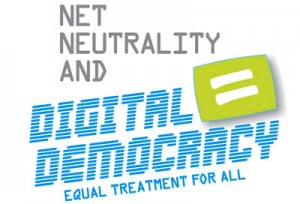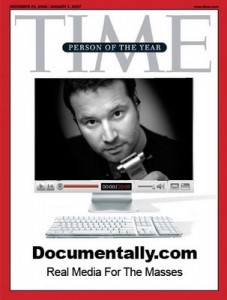Is there such thing as digital democracy?
I was looking through newsfeeds, and the one thing that popped up constantly was the blackout of Wikipedia, #SOPA, #PIPA, and the list goes on. Apart from the complaints by university students that they can’t get on reddit for procrastination’s sake, or they can’t do “research”, what do these protest movements point to? A growing need to define the rights to intellectual property, especially in the realm of cyberspace, hence the new term: digital democracy.
While “radical” measures have been taken up by SOPA and PIPA, another movement, named OPEN, has just commenced, endeavoring to offer a “more moderate” approach to the amendment of the newly introduced piracy act. It is perhaps the less known of all three initiatives.
“The OPEN Act differs in that it would make the International Trade Commission (ITC) the agency responsible for fighting online piracy. The ITC already handles all cases involving foreign imports that are accused of copyright infringement, so it would seem a more natural fit for dealing with foreign websites, according to Issa and Senator Ron Wyden (D-OR), the bill’s other main co-sponsor”. (To read more, click on: http://idealab.talkingpointsmemo.com/2012/01/the-open-act-introduced-can-it-kill-sopa-and-pipa.php)
On the other hand, SOPA and PIPA acts “give the U.S. Attorney General the power to seek court orders to take-down foreign websites when those websites are accused of piracy by copyright holders, like Hollywood and the recording industry”.
More importantly, “the agency could only force U.S. advertisers and payment companies to cut-off business with the foreign website, NOT search engines or Internet Service Providers, as had previously been required by both SOPA and PIPA. The OPEN Act also narrows the definition of what can websites can be targeted, saying that only those foreign sites that have “a limited purpose” aside from piracy or are clear piracy centers can be considered”.
http://whatsnext.blogs.cnn.com/2012/01/18/the-open-act-as-an-experiment-in-digital-democracy/
The major selling point is the niche:
“The full text of the proposed bill is available at an easy-to-use website, KeepTheWebOpen.com. And, most important, people who go to that website can annotate the bill with comments and suggestions for its author, much like they would a Wikipedia document. There’s a field where you can submit your e-mail address to receive updates about changes to the bill and its path through the maze that is our legislative process”.
It is a form of participatory democracy, wherein, the participant can go on the website and give direct comments and suggestions, and annotate the bill. It appropriates the concept put forward by Wikipedia. Out of this frenzy, is the birth of the term Digital Democracy.
This brings me to the discussion on Collier and Levitsky’s article named “Democracy with Adjectives”. They insist on the necessity for subtypes of democracy to assess the causes and consequences of democracy in order to ensure conceptual validity of Democracy. The question I pose is, how does digital democracy score on “The Ladder of Generality”? I argue that we are entrapped in a society where technology, especially the “digitized” world is in fact the platforms for communication between governments, and certainly the electorates and the elected. The merits and quality of communication aside, it is still a forum for generation of ideas and civic participation. In fact, “digital democracy” can fit into almost any kind of democracy. On the scale of generality, it scores high on the ladder for broadness. In fact, one may argue that these subtypes are “more general than the concept of democracy, this approach [might] lead to a loss of conceptual differentiation” (pp.437). Of course, this kind of democracy will be completely different, having no overruling authority, since it transcends boundaries. Initially, there must be an intrinsic value to this kind of democracy in order for it to be able to “self-police” in various nations. There will somewhat be controls by that of either the “US Attorney General” or the bureaucracies in domestic politics, in examples cited above. However, it essentially should be monitored and judged the people engaging in it. Any thoughts on this?
To read more on this article, please visit:
Collier, David, and Steven Levitsky, “Democracy with Adjectives: Conceptual Innovation in Comparative Research,” World Politics 49 (1997): 430-51. http://www.jstor.org.ezproxy.library.ubc.ca/stable/25054009


0 comments
Kick things off by filling out the form below.
Leave a Comment